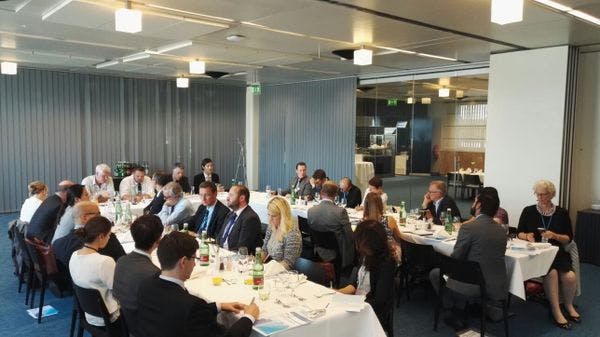Back in the saddle: reflecting on the UNGASS outcomes and what comes next
The UN General Assembly Special Session (UNGASS) on drugs in April 2016 was a huge landmark for the international drug policy movement – a focal point for the efforts of many member states, donors, UN agencies, civil society stakeholders (including IDPC) and activists alike. Almost inevitably, its closing on 21st April was followed by a relative hiatus in the drug policy debate – as people took time to reflect and digest the mixed outcomes, recuperate and overcome what we have termed “Post-UNGASS Stress Disorder”. When the UN Commission on Narcotic Drugs (CND) announced an inter-sessional meeting for member states on 8th September, the time seemed right for us to kick-start the discussions again and look forward to what happens next. This includes the next big UN-level moment on drugs in or around 2019, which is the target date for member states to “eliminate or reduce significantly and measurably” drug use, supply and trafficking according to the 2009 Political Declaration and ten-year action plan – targets that will obviously not be achieved.
IDPC hosted an informal lunchtime briefing for member states to coincide with the meeting in Vienna, Austria – at which 30 participants (including delegates from around 20 member states) came to hear presentations from myself, Martin Jelsma from the Transnational Institute (TNI) and Khalid Tinasti, Executive Secretary for the Global Commission on Drug Policy. The meeting was Chaired by Martin Matter from the Permanent Mission of Switzerland, and was funded through the German Government’s Global Partnership on Drug Policies and Development (GPDPD), of which IDPC and TNI are civil society partners.
Speaking first, I took the opportunity to launch IDPC’s UNGASS Proceedings Report, which documents and analyses the various outcomes and events from April. On one hand, progress was undoubtedly made and hard-fought for – such as the inclusion in the Outcome Document of naloxone, proportionality, gender perspectives, access to medicines, development, and alternatives to conviction and punishment, among other things. Yet there was still a sense of frustration among many stakeholders about the opaqueness of the whole process and some of the things that the Outcome Document omitted – not least the reality of regulated cannabis markets in some jurisdictions, the continued use of the death penalty, and the failings of prohibition. But the UNGASS outcomes stretch beyond this document. For example, the heightened engagement of all relevant UN agencies was a major step forward, as was the breadth of the country statements in New York which clearly demonstrated the lack of consensus on key issues. This needs to be nurtured now as we look towards the post-UNGASS period – starting with the series of CND meetings in October to discuss how to implement the UNGASS decisions. The commitment to civil society engagement also needs to be turned into actions and resources to allow meaningful engagement without the barriers faced in New York.
Khalid Tinasti then presented the views from the 23 Global Commissioners, who had closely followed and engaged intensively in the UNGASS debates. In their view, the best outcome from the UNGASS came from the – at times candid – country statements, many of which were clear about the failures of current approaches and the need for a new paradigm. The Global Commission’s priority topics moving forward are decriminalisation and the adoption of regulated markets. In their view, any high-level UN events in 2019 or 2020 should be maintained at the UN General Assembly level in New York, rather than here in Vienna.
Finally, Martin Jelsma introduced the joint TNI and Global Drug Policy Observatory briefing “UNGASS 2016: A Broken or Broad Consensus?”, and discussed some of the options and dilemmas over the next three years. Most of the procedural requirements from the 2009 Political Declaration and other similar UN documents have now been completed, leaving somewhat of a “procedural vacuum” for 2019 – and the UNGASS Outcome Document does not mention 2019 at all. The danger is that this vacuum is filled by a repeat process – a “Pavlovian response from Vienna” (although it is highly unlikely that there will be another UNGASS on drugs as soon as 2019). The previous review of a Political Declaration – back in 2008 – was split into three distinct stages: an evaluation of the previous agreements and targets, a “period of reflection”, and then the negotiation of a new text in 2009. This was proposed as a sensible model, with other options including the creation of expert working groups to explore key issues. Martin also emphasised the importance of retaining, or further enhancing, the seven-pillar approach in the UNGASS Outcome Document – with new pillars for access to medicines, development and human rights – in any future documents. Measures need to be taken at an early stage to also address some of the weaknesses of the UNGASS process: such as the perceived lack of transparency, and the inability of many member states to engage in Vienna-based negotiations. Rather than one event, there could even be a series of debates across CND, the Human Rights Council, the World Health Assembly, the Economic and Social Council, the General Assembly and others.
Overall, the briefing was a timely opportunity to discuss the post-UNGASS period, and what options exist for any future UN meetings on drugs – in order to build upon the momentum that the UNGASS has helped to achieve. Although member states’ immediate focus is on how to best implement the UNGASS Outcome Document – with a series of meetings now planned for October on this topic – these discussions were well received by the member states in the room, as the plans for 2019 or 2020 will soon start to take shape in the coming months.
Keep up-to-date with drug policy developments by subscribing to the IDPC Monthly Alert.
Regions
Related Profiles
- Deutsche Gesellschaft für Internationale Zusammenarbeit (GIZ)
- Global Commission on Drug Policy
- International Drug Policy Consortium (IDPC)
- Transnational Institute (TNI)
